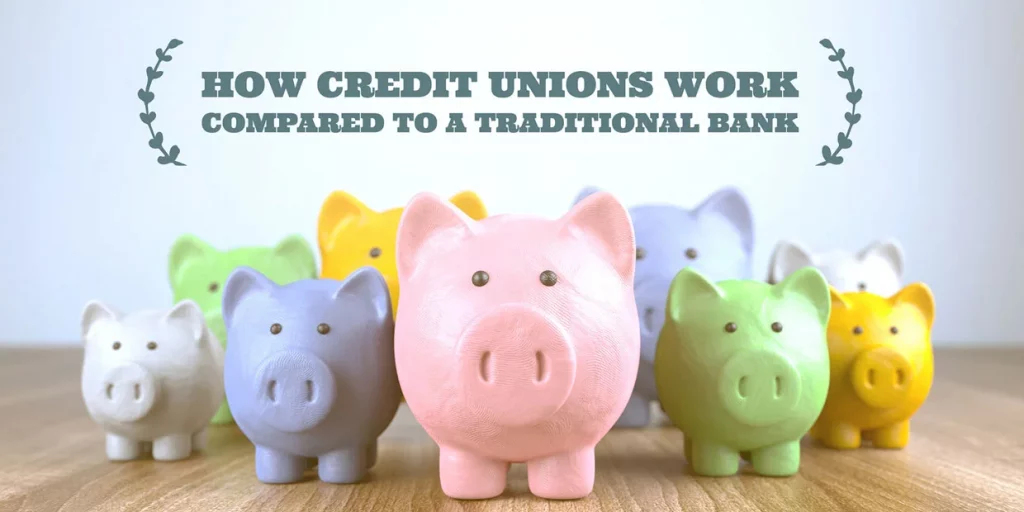How Credit Unions Work Compared to a Traditional Bank

Published: July 6, 2018
If you've never belonged to a credit union, you might be under the impression that banks and credit unions are somewhat interchangeable. Yet the truth is that there are very real differences between the two.
By understanding how each respective institution works, you can make an informed decision about how to best handle your financial needs.
How Credit Unions Operate Differently From Traditional Banks
While credit unions and banks offer many of the same products and services, they also differ in a few significant aspects. The most important of these differences is the manner in which they are organized. Banks are conventional, for-profit businesses. Credit unions, on the other hand, are not-for-profit financial cooperatives.
This means that banks are designed to serve virtually anyone, and seek to maximize profits and/or shareholder returns. Credit unions, on the other hand, were originally designed to serve groups of people connected by a bond of association, such as living in the same community, working for the same employer or being a member of the same organization.
This key difference manifests itself in a variety of ways. Some of the most important to consider are:
- Credit unions usually offer lower fees and rates. Because a credit union is designed to serve the needs of its members -- rather than to maximize profits -- it can offer its members lower fees and rates than banks can.
- Better customer service. Because credit unions are focused on bonds of association, they tend to be smaller and more customer-focused than larger banks.
- When members deposit money at a credit union, they are buying shares of the company. Rather than being a customer, they are part owner.
- Instead of using profits to pay shareholders, a credit union uses them to offer its members higher rates on deposits and lower loan rates.
In conclusion
Credit unions and banks offer many of the same services, but they also differ in several significant ways. These differences are largely the result of how each entity is organized.
By understanding these differences, you can make an informed decision that best suits your financial needs.






